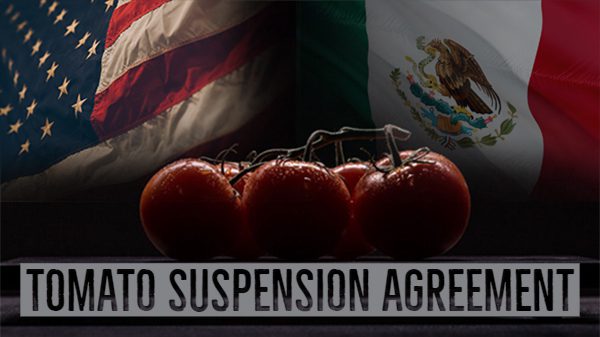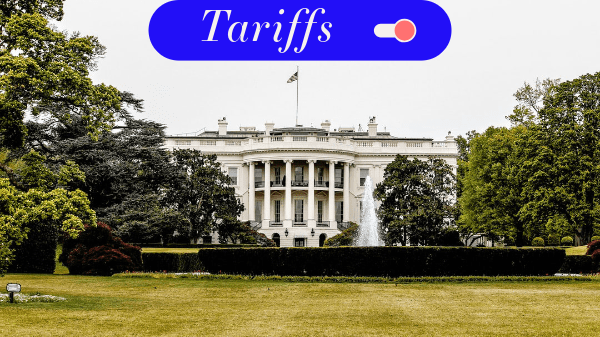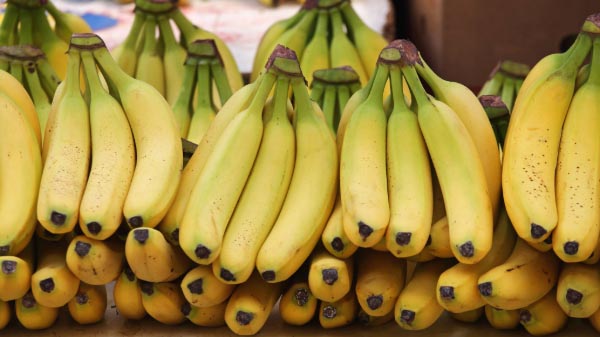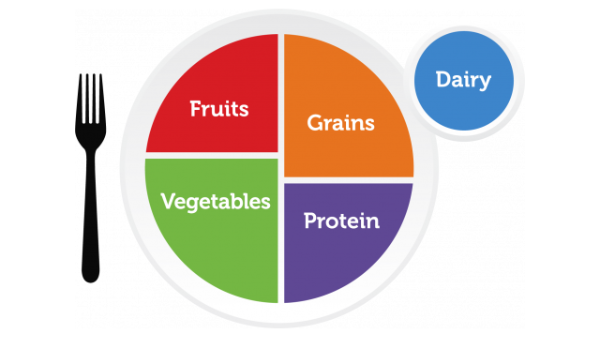Welcome to Blue Book!
Are you ready to join the thousands of companies who rely on Blue Book to drive smarter decisions? View our plans and get started today!
Still have questions? We’d love to show you what Blue Book can do for you. Drop us a line– we’ve been waiting for you.

Tariff discussions diverge between North and South, and the tomato industry starts another chapter of suspension agreement battles.
Plus, we may be at the start of deciding whether to embrace the Make America Healthy Again (MAHA) movement.
Tariffs
At the two industry events last week, tariffs were the No.1 discussion point, but the atmospheres diverged.
At CPMA in Montreal, tariffs seemed more personal: CPMA president Ron Lemaire said fruits and vegetables should be left out of tariffs, but while Canadian product coming to the United States is exempt as long as it’s USMCA-compliant, Canada has imposed various tariffs on U.S. product going there.
Canadian consumers seem upset about the tariff talk and President Trump’s joking about making Canada a U.S. state. There are federal elections coming soon, so politics is heavy up north.
Meanwhile at Viva Fresh in Houston, which I attended, tariffs were certainly front and center, but the vibe was different than up north.
During the standing-room-only tariff education session, Anne MacMillan with Invariant Government Relations said Mexican and Canadian government approaches to tariffs and Trump have been quite different.
Mexico’s president has been publicly cooperative and willing to negotiate behind the scenes. Canada’s leadership has been confrontational, she said, and there’s even some sentiment among Canadian consumers to boycott American goods.
Texas International Produce Association president Dante Galeazzi said he expects renegotiation of USMCA to start in August. The current USMCA has been generally good for the produce sector and consumers in keeping prices down, so the new version will have huge importance to produce buyers and sellers.
Not to be left out of the tariff discussion, major banana importers highlighted their campaign to get their product exempted from tariffs, arguing that bananas and other tropicals can’t possibly be grown in the United States at levels that meet American demand, so tariffs don’t have their intended effects. It’s unclear how much this message has been received in the Trump administration so far.
Tomato Suspension Agreement
The other huge issue this week has been the United States announcing its intent to withdraw from the 2019 Agreement Suspending the Antidumping Investigation on Fresh Tomatoes from Mexico, with termination effective in 90 days (from April 14).
American tomato growers and their associations called the move a major victory, as they claim Mexican growers have undercut American growers in the marketplace.
In opposition, U.S. importers of Mexican tomatoes and Mexican grower groups say the termination of the agreement will raise tomato prices for U.S. consumers and deprive them of the tomato varieties that are winning in the marketplace.
The 90-day period ends in mid-July, so it would end in the heart of the U.S. tomato season, in a time where Mexican product is at its lowest volumes, so we wouldn’t likely see the effect of the move until fall.
Considering how quickly things change, it’s hard to anticipate what it will mean for trade and consumers three months away.
SNAP changes
One of the issues Trump ran on and got elected on was the Make America Healthy Again (MAHA) movement of improving Americans’ health, including our diets.
USDA leadership threw support behind Arkansas’ petition to ban junk food, including soda and candy, from its SNAP program.
Retailers have long opposed restrictions such as these to SNAP, and the National Grocers Association, which represents independent supermarket operators, says changes will have unintended consequences for both consumers and smaller retailers.
Retailers publicly show concern for their customers, but they also don’t want to see lost sales.
This is a complicated issue for the produce industry which has been reluctant to battle other food industries, but I’ve long argued this is a battle which we should fight.
Decreases in junk food purchases in SNAP could and should result in higher purchases of healthier food, such as fruits and vegetables.
Our industry is on the right side of this battle, and this debate highlights how far consumers are from meeting their fruit and vegetable consumption goals.
Raising produce consumption should be a bipartisan issue, so we should embrace MAHA and take on the giants of junk.








